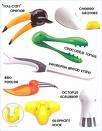Unfortunately, many people still assume--incorrectly, of course--that veganism is expensive. If you eat costly packaged food and store-bought faux meats everyday, being a vegan will certainly bust your budget.

Take heart. Even small adjustments to your thinking, habits and food preparation methods can make a huge impact on your wallet, as you'll see from these tips--most of which have the added benefit of being environmentally-friendly.
- Bake your own bread. It doesn't take much hands-on time and can save your about $3 a loaf. For a married couple, that adds up to $156 in a year.
- Freeze your assets. Freeze leftovers, food that's just about to turn, or produce overflow.
- Cook beans from scratch and freeze them in ziplock bags. You'll have fresh, cooked beans at a moment's notice and at half the cost of canned beans. [Canned beans are still a good value in my opinion, though. They have saved me from succumbing to the takeout menu many times.]
- Consider the long-term financial implications of organic. Sure, buying pesticide- ridden, traditional produce like peppers and peaches, may be cheaper in the short-term. But since many of these chemicals are banned in other countries, it's not unreasonable to treat them with extreme suspicion. Think of organic an investment in your health.
- Make your own faux meats. If you must have faux meats, seitan is simple to prepare. Make several batches at once, and freeze the leftovers in plastic containers.
- Pack your own lunch. This habit has saved Omniman and me thousands over the years. Consider this: A basic sandwich in Philadelphia costs about $6 plus $2 if you want a drink. By those calculations, Omniman and I are saving $1,920 each per year. [$8 x 5 working days x 48 work weeks, minus vacation ]
- Don't buy what you already have. Why purchase Tupperware, for example, if you have access to plastic Earth Balance tubs? Don't recycle a plastic lunch bag after just one use. Rinse it out and use it again.
- Remember: packaged foods [please only choose healthy versions!] are still cheaper than eating out. Restaurant meals are our main source of entertainment, especially since we have access to so many great eateries here in Philly. But we try to limit our excursions to weekends. Packaged foods, judiciously used, have deterred us from eating out on countless weeknights, after particularly trying days on the job.
- Pass on plastic bottles of water. Bottled water is an environmental and economic bane. Fill your own water bottles to take with you.
- Use cloth napkins. Not only are they more elegant than paper, they also cost less in the long run, and are kinder to Mama Earth.
- Know how much stuff costs. This takes some practice, but if you become familiar with how much things cost, you will develop a nose for a bargain. Keeping a "price book" can help you develop this $-saving skill.
- Stock up. When an item you frequently use goes on sale, stock up. It's money in the bank, even if you need to store 10 bags of flour under your bed.
- Buy seasonal produce. Not only does it taste better, but it also tends to cost less.
- Grow your own. If you have a yard or patio, raising your own veggies will save you a huge chunk of change. I don't have an outdoor space, but I do grow herbs indoors.
- Make the time-consuming stuff. Cookies. English Muffins. Bagels. Popcorn. Try it once and you'll see it's not as hard as it looks.
- Borrow your cookbooks from the library instead of buying them. OK, here's where I could use an intervention.
- Ethnic grocery stores are your friends. They'll outprice Whole Foods any day.
- Never, ever throw food away. My parents grew up during the Depression, so this notion was branded into my brain at an early age. Freeze leftovers, or find a way to reinvent unsuccessful dinner "experiments."
- Before you go grocery shopping--make a list. Set a budget. And stick to it.
- Some appliances are investments, not extravagances. My ice cream maker has paid for itself many times over, for example, in pints of sorbet and soy cream.
- You can can. A small investment in equipment and time can yield huge savings, especially if you garden.
- Give edible gifts. Not only are they greatly appreciated, but they are also healthier and less costly than giving traditional presents.
- Pay less for kitchen wares. Scout out bargains at flea markets, garage sales and in thrift stores. You'll find something chic--and cheap.
- Put a lid on it. Water will boil faster, and you'll use less energy, if you put a lid on the pan.
- In this age of conspicuous consumption, remember this old New England adage: "Use it up. Wear it out. Make it do, or do without."
Share your own money saving tips here...
Source- http://urbanvegan.blogspot.com/2008/01/25-money-saving-kitchen-tips-for-frugal.html
Read more on "25 money saving kitchen tips"!
 Another big win for Nokia. The Finnish handset giant announced today that it had struck a deal with Chinese mobile phone wholesaler China Postel to supply $2 billion worth of handsets in China.
Another big win for Nokia. The Finnish handset giant announced today that it had struck a deal with Chinese mobile phone wholesaler China Postel to supply $2 billion worth of handsets in China.








